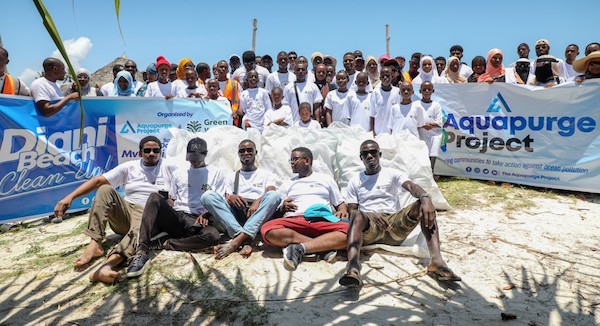Founded by David Machuche, Chatafisha operates in Dar es Salaam, addressing pollution in rivers like the Msimbazi. The initiative incentivizes waste pickers to collect plastic by rewarding them with tokens that are convertible to local currency.
- Empowering Locals: Waste picker Jane Mago increased her monthly income by 50% after joining Chatafisha. She uses her earnings to support her children and improve her living standards.
- Tokenized Economy: The waste collected is weighed and tracked via blockchain. Tokens earned can be exchanged for cash or staked for additional rewards.
The initiative also trains youth in waste collection and recycling, offering employment opportunities in a region where unemployment is a significant challenge.
In Kenya, Aquapurge, led by Ibrahim Aziz, focuses on ocean pollution along the coastline. The project rewards participants with PURGE tokens for their cleanup efforts, offering a reliable income source while restoring marine ecosystems.
- Community Impact: Aquapurge has organized 23 cleanups, collecting over 5,400 kilograms of waste, including a major effort in Kilifi. Local fishermen and small businesses participate, fostering a sense of collective responsibility.
- Digital Transparency: Blockchain ensures that every kilogram of waste collected is verifiable, building trust with sponsors and enabling participants to showcase their contributions.
Blockchain at the Core
Both projects leverage blockchain to create transparent and scalable systems that ensure fair rewards and attract corporate interest:
- Impact Tracking: Blockchain records every action, providing verifiable proof of contributions.
- Incentives: Tokens offer participants immediate financial benefits while driving environmental restoration.
- Corporate Collaboration: Verified environmental data attracts companies seeking to offset their carbon footprints.
A New Model for Sustainability
Chatafisha and Aquapurge are redefining environmental cleanup in Africa. By combining blockchain, financial incentives, and community engagement, these projects empower locals to protect their environments while earning a sustainable income. They exemplify how technology can bridge the gap between environmental responsibility and economic growth.
